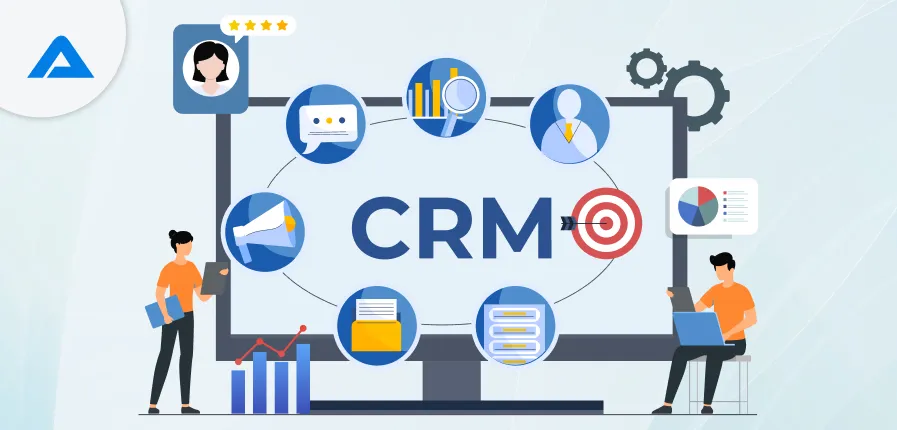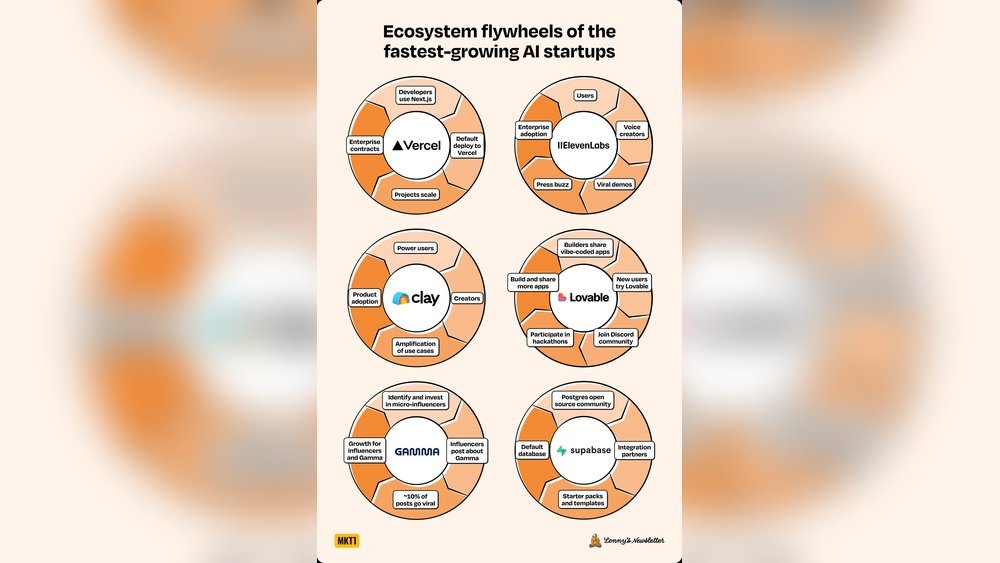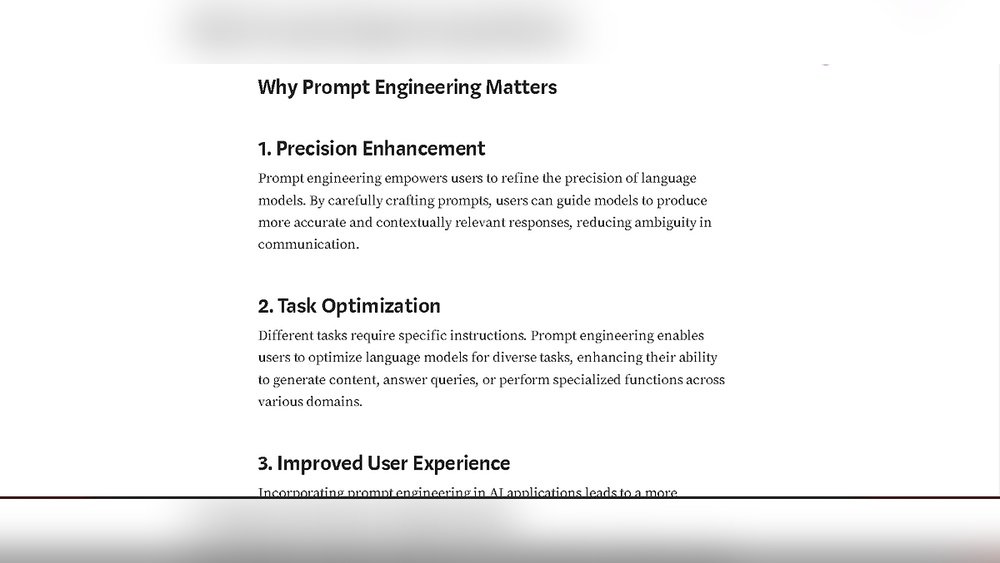CRM software development is vital for managing customer relationships. It helps businesses streamline processes and improve client interactions.
In today’s competitive market, effective CRM solutions can be the key to success. They allow companies to track customer data, automate tasks, and provide insights into customer behavior. Businesses benefit from customized CRM systems, tailored to their specific needs. CRM software development involves understanding client requirements and crafting solutions that enhance business operations.
This process requires expertise in software design and customer management strategies. Companies often seek CRM developers to build systems that integrate seamlessly with their existing tools. By investing in CRM software development, businesses can improve efficiency and foster stronger connections with their clients. Discover how CRM software development can transform your business strategy and customer engagement.

Credit: www.matellio.com
Introduction To Crm Software
In the digital age, CRM software plays a crucial role. It helps businesses manage customer relationships effectively. CRM stands for Customer Relationship Management. This software is designed to streamline interactions with customers. It provides tools and techniques to improve customer satisfaction. Understanding CRM software is essential for modern enterprises.
What Is Crm?
CRM is a technology used to manage interactions with customers. It helps businesses organize, automate, and synchronize sales. CRM systems are designed to compile information across channels. This includes customer data from websites, emails, and social media. The goal is to improve customer service and retention.
Importance For Businesses
CRM software is vital for business growth. It helps companies understand customer needs better. CRM provides insights into customer behavior. This allows businesses to tailor their strategies effectively. With CRM, companies can enhance communication with clients. It also aids in tracking sales and marketing efforts.
CRM software increases efficiency and productivity. It automates routine tasks, saving time for employees. Businesses can focus more on strategic activities. CRM improves data accuracy, reducing errors in customer records. It enables personalized marketing campaigns, boosting sales opportunities.

Credit: www.addwebsolution.com
Benefits Of Crm Software
CRM software is a tool businesses use to manage customer interactions. It helps in organizing customer data, improving service, and increasing sales. Let’s explore some key benefits of CRM software.
Improved Customer Relationships
CRM software provides insights into customer needs. Businesses can personalize their communication. This leads to better relationships. Customers feel valued and understood. This increases loyalty and satisfaction.
Enhanced Data Management
CRM software stores all customer data in one place. It makes data easy to access and analyze. This helps in making informed decisions. It reduces errors and saves time. Staff can focus on improving customer service.
Key Features Of Crm Systems
CRM systems are essential tools for businesses looking to streamline processes. These systems help manage customer relationships efficiently. They offer various features that enhance productivity and communication. Understanding key features can help businesses choose the right CRM software.
Contact Management
Contact management is a core feature of CRM systems. It stores all customer information in one place. This includes names, phone numbers, and email addresses. Businesses can easily access and update this information. It improves communication and service quality. Contact management also tracks interactions with customers. This helps businesses understand customer preferences and needs.
Sales Automation
Sales automation simplifies the sales process. It automates repetitive tasks, saving time and reducing errors. Sales teams can focus on closing deals instead of admin work. This feature tracks sales activities and progress. It provides valuable insights into sales performance. Sales automation also helps prioritize leads. This ensures that the most promising leads get attention first.
Custom Vs. Off-the-shelf Crm
Choosing between custom and off-the-shelf CRM software is like deciding between a tailored suit and a ready-made one. Each option has its own set of advantages and limitations. Your business needs and goals will guide you toward the right choice. Understanding the differences will help you make an informed decision that aligns with your objectives.
Advantages Of Custom Crm
Custom CRM solutions offer flexibility. You can tailor the features to meet your specific business needs. This means you won’t have to compromise on functions that are crucial for your operations.
Consider your unique processes. A custom CRM can adapt to them seamlessly, enhancing efficiency. It grows with you, scaling as your business expands.
Personal experiences often highlight the value of customization. If you’ve ever struggled with a generic software that just didn’t fit, you know the power of a solution that feels like it was made just for you.
Limitations Of Pre-built Solutions
Off-the-shelf CRMs are convenient. They offer quick deployment and lower upfront costs. But, they may lack the specific features your business requires.
Think about your industry-specific needs. Pre-built solutions might not cater to them. This can lead to inefficiencies and workarounds, impacting productivity.
What happens when your business evolves? Standard CRMs can struggle to keep pace, leaving you with a system that is outdated or insufficient.
So, what should you prioritize? Flexibility and customization, or cost and convenience? The answer lies in your specific business goals and future plans. Reflect on these aspects to guide your CRM choice.
Steps In Crm Software Development
Creating a CRM software involves several key steps. Each step is crucial for a successful product. It ensures the software meets user needs. Let’s explore these steps in detail.
Needs Assessment
The first step is understanding the business requirements. Identify what users need from the CRM. This includes features and user interface preferences. Gather input from potential users and stakeholders. Conduct surveys and interviews for deeper insights. Analyze existing processes to spot inefficiencies. This helps in designing a system that improves productivity. Document all findings for future reference.
Design And Prototyping
After the needs assessment, start the design phase. Create wireframes to outline the basic structure. These visual guides help in planning the layout. Develop a prototype to test the user experience. This is a working model of the CRM. It allows users to interact with the system. Gather feedback to refine the design. Make adjustments based on user input. Ensure the design aligns with user needs and business goals.
Choosing The Right Crm Developer
Finding the perfect CRM developer can be challenging. The right choice impacts your business success. A skilled developer ensures seamless integration with existing systems. They also provide custom features to fit unique business needs.
Evaluating Expertise
Check the developer’s past projects. Experience in CRM development is crucial. Request case studies or references. Confirm they understand your industry needs. A well-versed developer will offer valuable insights.
Budget Considerations
Set a clear budget before starting. Affordable does not always mean the best. Compare quotes from multiple developers. Weigh cost against potential benefits. Ensure the developer offers value for money.
Integration With Existing Systems
Integrating CRM software with existing systems enhances efficiency and data management. Seamless integration ensures smooth communication between departments. This leads to improved customer relations and streamlined operations.
Integrating CRM software with your existing systems can seem like a daunting task. Yet, it’s essential for seamless operations and maximizing your tech investments. It’s all about making sure your new CRM plays well with the tools you’re already using.
Ensuring Compatibility
Before you start integrating, check the compatibility of your current systems with the CRM software. Not all software is created equal, and some might not mesh well with your existing tools. You might need to consult with your tech team or the CRM provider to ensure a smooth fit.
Remember the time your team was excited about a new tool, only to find out later it didn’t gel with your existing systems? Avoid that headache by doing your homework first. Look for CRM options known for their flexibility and compatibility.
Data Migration Strategies
Data migration is a critical component of CRM integration. It involves transferring data from your old systems to the new CRM. This step requires a careful strategy to avoid data loss or corruption.
Consider creating a data backup before you begin the migration process. This ensures that you have a safety net in case things don’t go as planned. Also, determine which data is essential to migrate and what can be left behind.
Have you ever moved homes and realized you brought along stuff you didn’t need? The same principle applies here. Be selective about the data you migrate to keep your CRM clean and efficient. Prioritize data that will help you in achieving your business goals.
Integration with existing systems can be challenging, but with the right approach, it can streamline your operations and improve efficiency. Are you ready to take the plunge and ensure your systems work harmoniously together?

Credit: www.apptunix.com
Future Trends In Crm Software
CRM software development is evolving with AI integration and personalized user experiences. Predictive analytics will offer smarter insights for businesses. Enhanced mobile functionality will keep teams connected on the go.
In the ever-evolving world of CRM software development, staying ahead is crucial. As technology advances, new trends emerge, shaping the future of CRM systems. These trends focus on improving efficiency, user experience, and customer satisfaction.
Ai And Automation
AI and automation are transforming CRM software development. They streamline processes and enhance decision-making. AI analyzes customer data, predicting behaviors and preferences. This allows businesses to tailor their services. Automation handles repetitive tasks, freeing up valuable time. This results in faster response times and improved customer interactions.
Mobile Crm Solutions
Mobile CRM solutions are gaining popularity. They offer flexibility and accessibility. Sales teams can access data on the go. This ensures they are always informed. Mobile CRMs improve communication with clients. They support real-time updates and instant information sharing. This enhances productivity and customer engagement.
The future of CRM software is bright. Embracing these trends will provide businesses with a competitive edge.
Frequently Asked Questions
What Is Crm In Software Development?
CRM software development stands for Customer Relationship Management. It helps businesses manage interactions with clients. CRM systems streamline processes, improve customer service, and boost sales. Software developers create CRM solutions tailored to business needs, enhancing customer satisfaction and operational efficiency.
What Is Development In Crm?
Development in CRM involves creating and enhancing features that optimize customer relationship management processes. It focuses on customization, integration, and automation to improve customer interactions. Effective CRM development boosts efficiency, data management, and customer satisfaction, supporting business growth and retention strategies.
What Are Crm Software Skills?
CRM software skills include data management, customer relationship management, analytical thinking, communication, and technical proficiency. Users should know how to input, track, and analyze customer data effectively. Understanding CRM software interfaces and tools is essential for optimizing customer interactions and improving business strategies.
What Are The 4 Types Of Crm?
The four types of CRM are Operational, Analytical, Collaborative, and Strategic. Operational CRM streamlines processes. Analytical CRM analyzes customer data. Collaborative CRM improves communication. Strategic CRM focuses on long-term goals.
Conclusion
CRM software development offers endless possibilities for businesses today. It helps companies manage customer relationships efficiently. Streamlined processes save time and boost productivity. Tailored solutions meet specific needs and support growth. Investing in CRM tools enhances customer satisfaction and loyalty.
An easy-to-use CRM system simplifies tasks and improves communication. Businesses can make informed decisions with data insights. Staying competitive in the digital age requires smart CRM strategies. Embrace technology to thrive and succeed. Choose CRM software that aligns with your goals.
Make sure it supports your team effectively. Transform the way you connect with customers.







3 responses to “Crm Software Development: Transform Your Business Today”
[…] May 7, 2025 […]
[…] […]
[…] platforms is essential for seamless operations. AI management tools often support integration with CRM systems, marketing platforms, and more. This means you can create a unified ecosystem where data […]